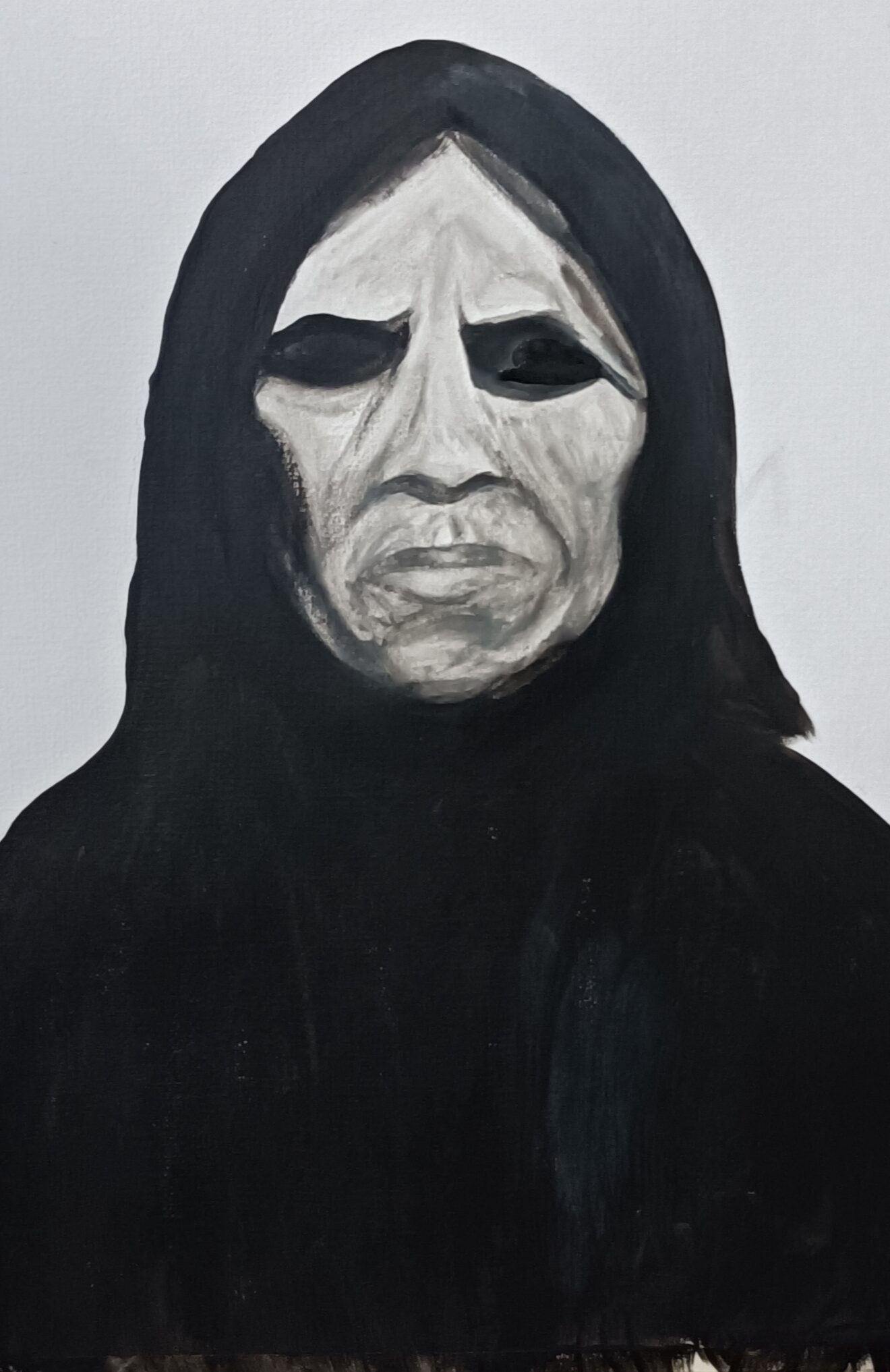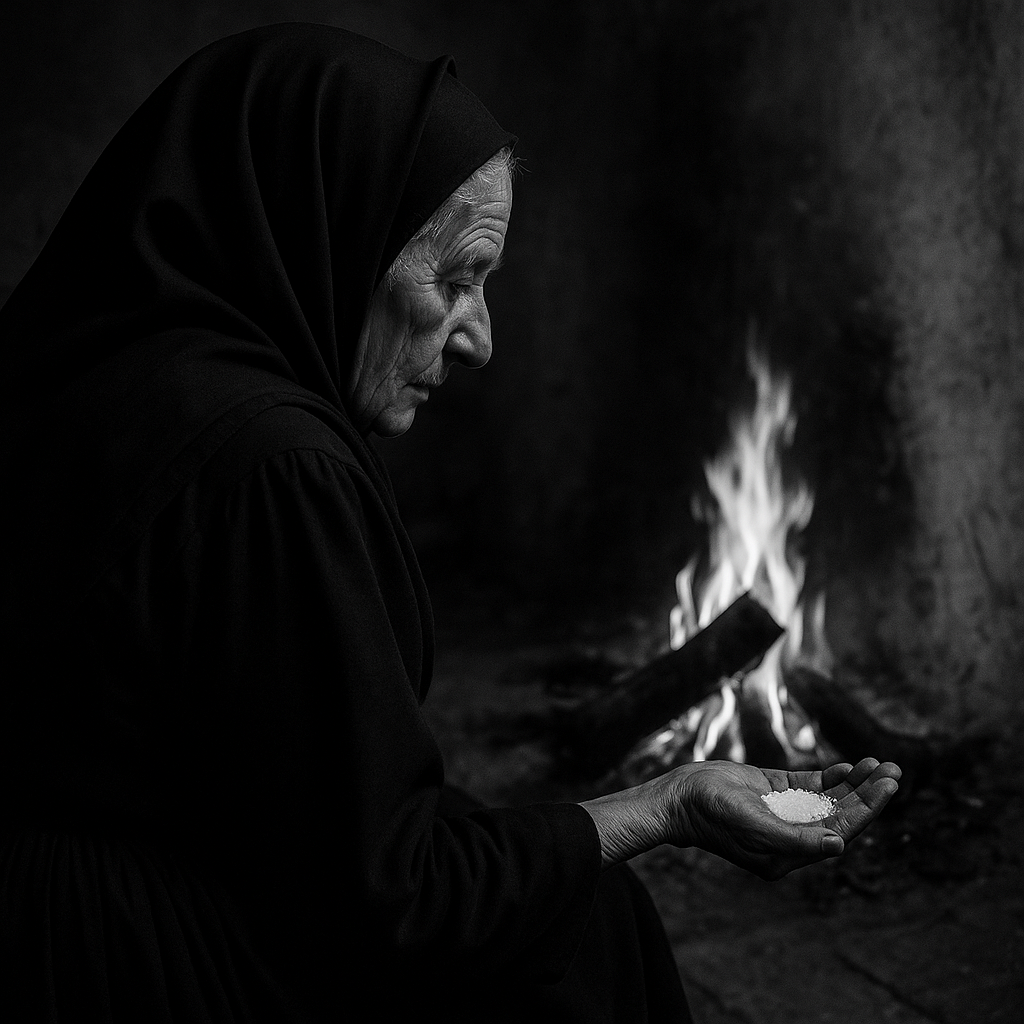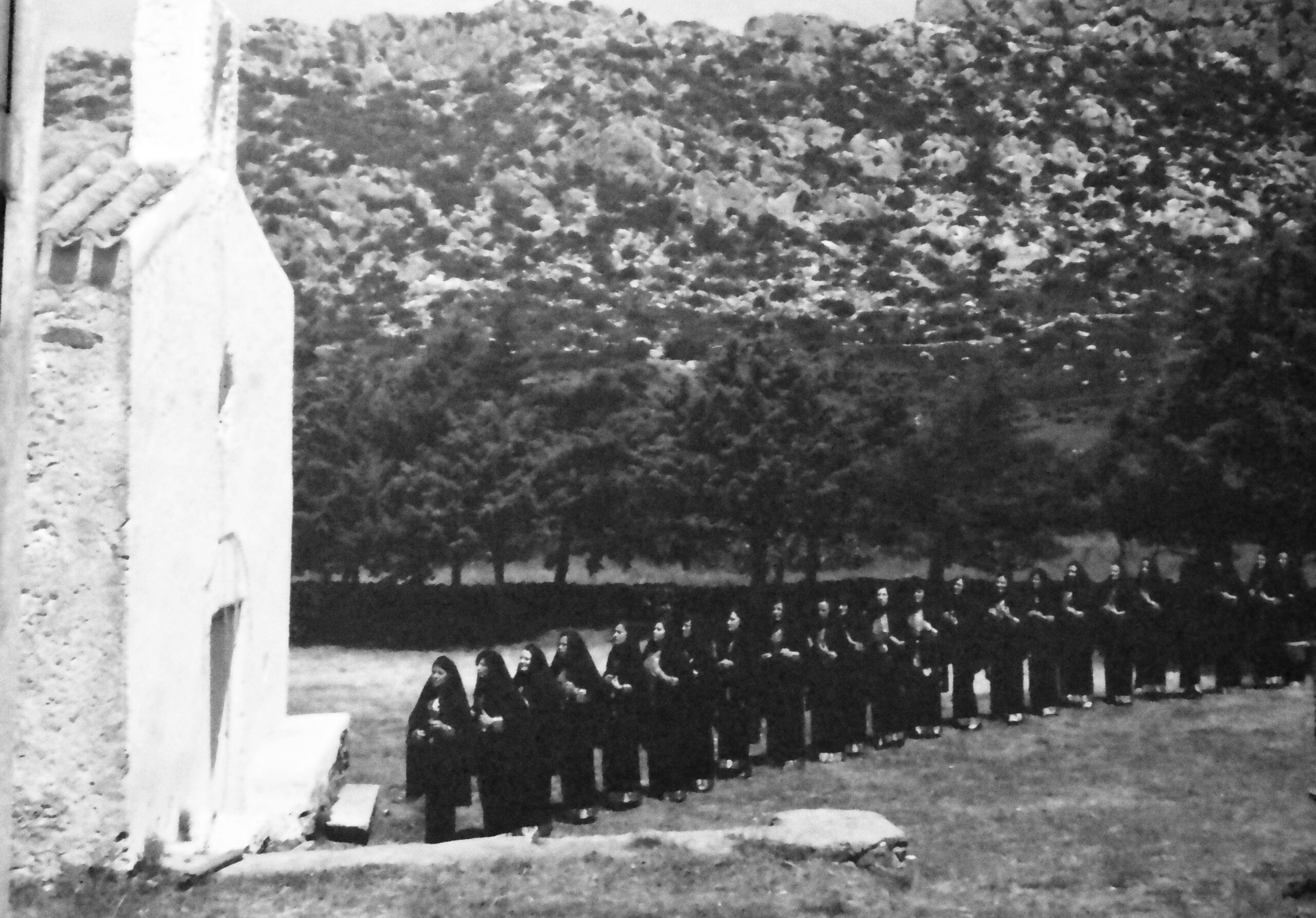In the collective imagination, the word banditry evokes the image of a bearded and rugged man, dressed in black velvet, holding a rifle and wearing a stoic expression. However, Sardinian women have always played a crucial role in shaping this phenomenon, clearly influencing it through manipulative whispers in the ears of men, telling them what should and should not be done. It sometimes happened, though, that circumstances led some women to take up the rifle themselves, putting into practice firsthand what their code required them to do.
One such woman was Paska Devaddis.
Born in Orgosolo in 1888, she was drawn into one of the most brutal feuds in Sardinian history, known as “sa disamistade di Orgosolo”, between the Cossu and Corraine families.
In a land where extreme generosity alternates with an unyielding determination never to allow anyone to dominate the others, especially in matters of inheritance or family disputes, the same hand that offers can become deadly.
The hand of Eugenio Podda was lethal to Carmine Corraine, who was killed in 1905 over inheritance issues. But, contrary to what is often said across the seas, in Sardinia justice doesn’t always take its course: Podda was acquitted because Don Cossu, a priest more influential than the God he preached, managed to influence the investigations, shielding the killer and sparing him from punishment.
We are in Orgosolo, in the early 1900s. Anyone with even a basic understanding of the temper and pride of a Sardinian man of that period knows that certain matters are open, bleeding wounds that can only be healed in one way: with more blood. Thus, in the most brutal feud in the island’s history, other families, including the Moro, Succu, and Devaddis, were drawn in, Paska’s family among them.
Paska’s brother was accused of murdering a member of the Cossu family, a crime that Paska is said to have witnessed, according to some witnesses. So, along with her family and her fiancé, she became a fugitive from the law, and the Devaddis family went into hiding.
We are in the Supramonte, a harsh land with a cold climate, where the life of an outlaw is far from that of a pampered city teenager: it is tough, and one must have a steel-like spirit to survive.
Paska’s spirit was indeed of steel. Legend has it that this woman, after being found by two carabinieri who, faithful to the law but not to common sense, tried to take advantage of her after finding her, managed to escape by threatening them with a rifle.
Picture her: a young woman, dressed in traditional clothes, in the rugged countryside of one of the most mysterious mountains in Sardinia, firing into the air to intimidate sa Lezze -the Law, remaining true to the harsh Sardinian law that states Zustissia enzat e a mie non tochet – Let justice come, but do not touch me.
By 1913, having long suffered from tuberculosis, Paska was found dead in the Supramonte. She chose to die as wild animals do: alone, lying in a cave, far from everything and everyone.
The two carabinieri never took advantage of her, and we have proof of this because her autopsy confirmed her virginity, and with it, her myth, which remains drenched in heroism and poetry:
“Pianghein sos montes dae s’adde
a s’altura, ca morta vit sa fada
de sos banditos. Paschedda Devadde
sa virgine de Orgosolo istimada”
The mountains wept, from the valley to the heights, for the death of the fairy of the bandits. Paska Devaddis, the revered virgin of Orgosolo.
The bandits who had been in hiding with her showed further courage when they carried her lifeless body back to her home, crossing Orgosolo and risking death because the town was teeming with carabinieri and enemies of their own family.
But it was in Orgosolo that Paska’s body had to return, because according to a law in the barbaricino code, a bandit who dies during their fugitive life must return to their home, or they would suffer eternal dishonor.
Orgosolo, the place where everything began and ended, with a sentence in 1917 that forced justice to compromise with its own enemy, the Sardinian code: everyone was acquitted.
Paska’s body was laid to rest in her finest wedding dress, the one she would never wear, because of a cultural earthquake whose effects are still visible today.



